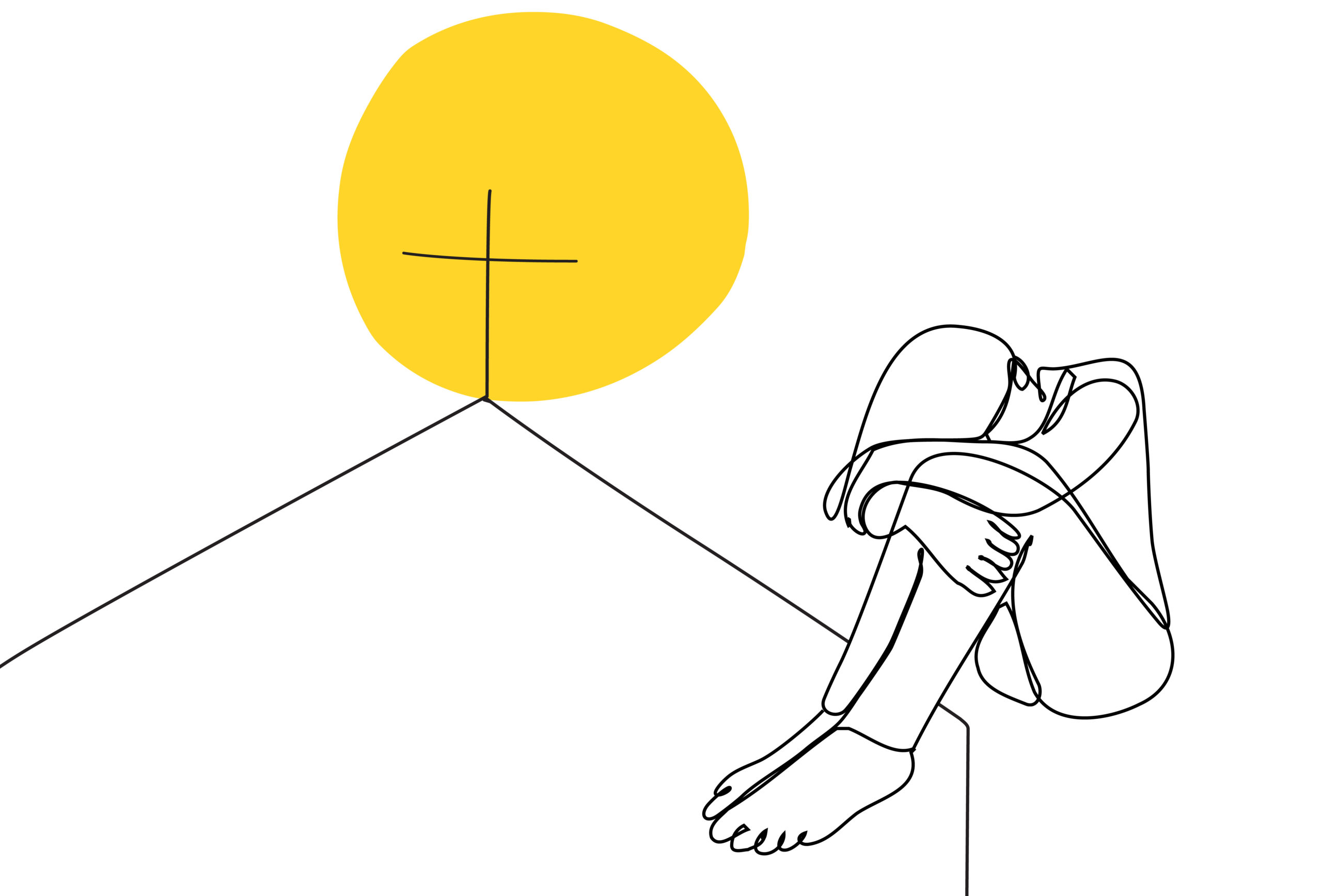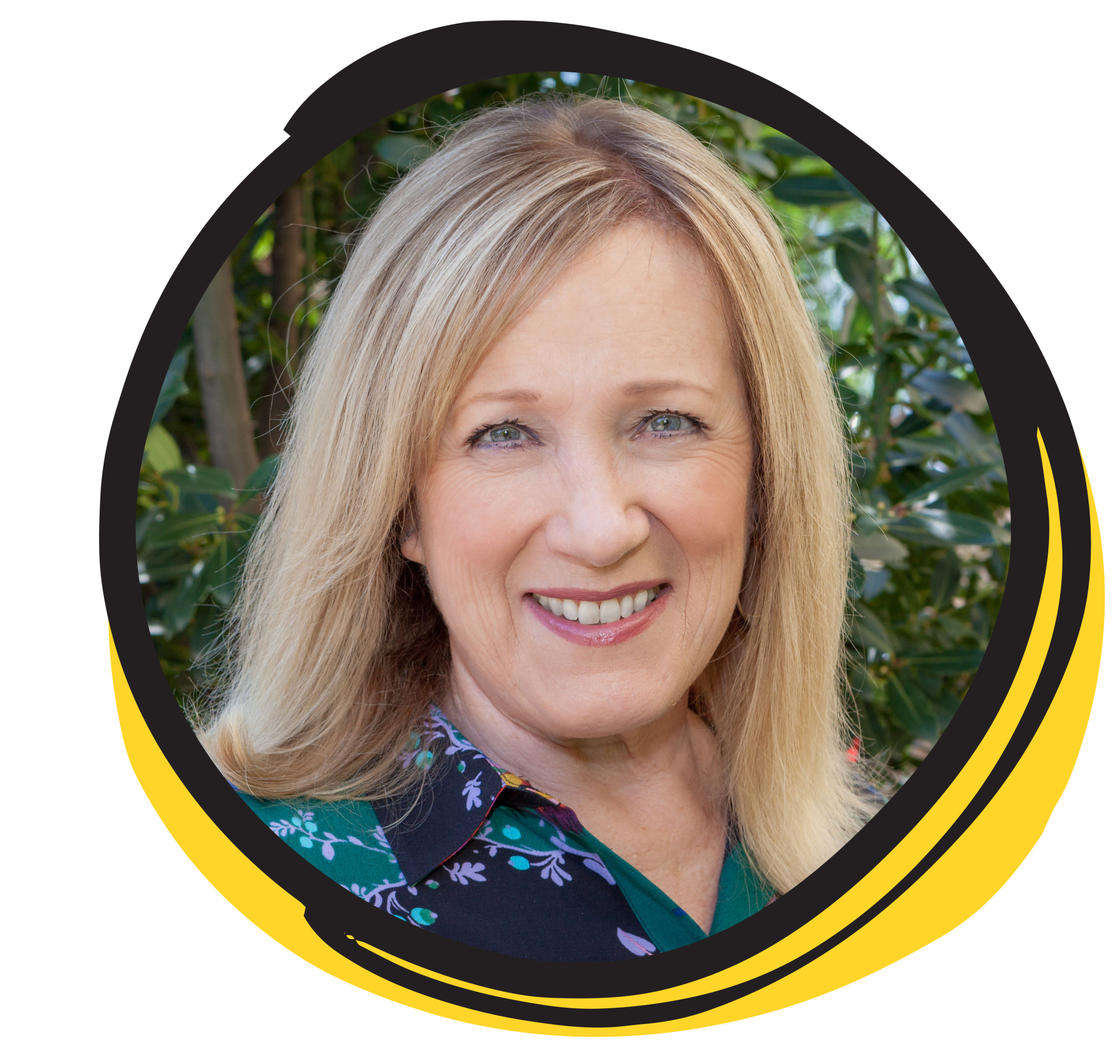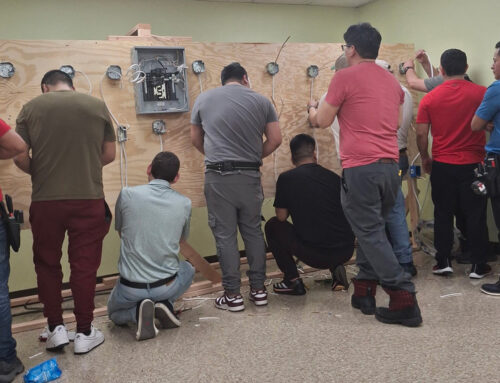
The Unloved Congregant
by Robert Mitchell
People suffering from mental illness are often ostracized by the Church, but Kay Warren believes Christians are uniquely qualified to reach out with love, compassion, and support.
They sit in the pew next to you every Sunday. You chat with them in the foyer after services. They’re just like you except they may quietly suffer from depression, anxiety, panic attacks, bipolar and eating disorders, or maybe even schizophrenia.
Mental health issues will affect one in five adults and children this year and the Church has a role to play in helping to address this problem, says Kay Warren, the co-founder of Saddleback Church in California and the wife of best-selling Christian pastor and author Rick Warren.
“I think the Church can step up to the plate and really acknowledge the reality of mental illness,” Warren told SACONNECTS magazine. “Everyone knows someone. It’s very common. It’s real. These are not folks who are weak or who don’t have faith or don’t love Jesus enough. These are people just like us who are experiencing a mental health challenge and they need the comfort and the support and the kindness of the Church.”
 Warren, who addressed the Evangelical Press Association (EPA) on the issue last year, said the stress caused by COVID–19 was hard on every American, but the uncertainty, lockdowns, and loneliness were tougher on people with mental challenges such as depression and anxiety. Where do these people go to find compassion, care, hope, and understanding?
Warren, who addressed the Evangelical Press Association (EPA) on the issue last year, said the stress caused by COVID–19 was hard on every American, but the uncertainty, lockdowns, and loneliness were tougher on people with mental challenges such as depression and anxiety. Where do these people go to find compassion, care, hope, and understanding?
“I really believe the Church needs to be that safe, compassionate, welcoming place for all who suffer,” said Warren, whose son Matthew suffered from mental illness and committed suicide in 2013. “When the Church recognizes that it has a significant role to play in offering comfort, support, and accurate information, and we make a commitment to walk alongside them in this crisis, we’re really going to demonstrate the love of God in a profound way.”
Bowed but not broken
Warren said 43 million people will be affected by mental health issues this year amid a shortage of mental health professionals and treatment beds. She lamented that prisons have become the de facto mental health system in America.
While government and non-profit advocacy groups do all they can, Warren said it’s time for the Church to step up and help.
“While there are so many people trying to help, there is a desperate need for the Church to engage with individuals with mental health challenges and their families,” she said. “The Church is positioned to take strong leadership and to provide help that others can’t or won’t.”
Warren recalls a simple prayer from her husband eight years ago for people living with depression. Standing in the pulpit of Saddleback Church, he reminded them that they were special to God and asked Him to comfort those suffering.
“Afterward, several people came up to him on the patio and said, ‘Thank you for mentioning depression, for saying the word aloud in our church. It made me feel less alone.’ Really simple things like talking about it or hearing stories or testimonies from people who are living with depression or anxiety and where they are getting help from God … normalizes mental health challenges, Warren said. “It puts a face on them.”
After the death of their son, the Warrens founded Saddleback’s Hope for Mental Health Initiative. According to the church’s description, it is “designed to encourage individuals living with a mental illness, educate and support their families, and equip church leaders for compassionate and effective mental health ministry.”
“In the nearly eight years since he died, we have been devastated, but not destroyed,” Warren said.
Warren said nearly 80 percent of Americans have a religious affiliation and there are 350,000 faith congregations. At the same time, 25 percent of those suffering from mental health issues will go to a religious leader before they’ll go a mental health professional.
The Church, Warren said, has opportunities to serve and care in unique ways and “make a significant dent in the mental filling in the gaps left by the government and public and private sectors. And, of course, sharing the love of Christ with hurting people.
“We, as the Church, can provide what no one else is providing,” she said.
All are welcome
Warren talked about visiting Kalighat in Calcutta, the Home of the Pure Heart (formerly Mother Teresa’s Kalighat Home for the Dying Destitute). While there, Warren prayed for and comforted people in their last moments of life. Warren was struck that others from local churches were not there.
“Where were the believers in that city who would pick up the broken bodies from the gutters? Where were the families who would open their homes to the outcasts, so they don’t die alone? It’s not primarily the job of a charity like Mother Teresa’s. It’s not even the job of the government, per se. It’s the job of the Church,” Warren said.
“If we don’t do it, it’s not going to be done. It’s going to be messy. The Church is the only vehicle that God has chosen to spread His message of compassion and mercy. At the center of it all is Christ and His body, the Church. You can’t say you love Jesus and hate His Church or have no use for it or ignore it. It is His body … and in His Church, in His body, there is a place for everyone, absolutely everyone.”
The solutions include a combination of Scripture and professional mental health services, Warren said. She rejected the notion that it’s exclusively one or the other, calling that idea a “false dichotomy.” She sees “no competition between faith and psychology, and I think they both have something to say” on the issue.
“It’s a cooperative,” she says. “All truth is God’s truth and God has blessed some wonderful people with an understanding of how our minds and our bodies work, and combined with our faith, I think we can get the best results. When we can take the best of both, I think that’s when we’re the healthiest people that we can be.
“I see it as a beautiful marriage of God working in our spirit and in our heart and our bodies. We’re whole beings and we need help in healing every part of ourselves. God is the one who created us, who put breath in our lungs, and we belong to Him.”
Warren said the Bible includes examples of depression, such as David’s downcast spirit regarding his sin. Warren, in her speech to EPA, quoted Luke 4, when Jesus read Isaiah 61 in the synagogue and revealed that the Messiah would stand with people who suffer.
“If we, as followers of Jesus Christ, are going to fulfill our mission, if we’re going to do the same things that Jesus did, we’re going to need to stand with those who suffer,” Warren said. “Some of those who suffer the most intensely in our world are those who suffer severe mental health challenges.”
C.H.U.R.C.H.
Warren offers a C.H.U.R.C.H., acrostic that outlines practical steps churches can take to battle mental illness:
C—Care for and support individuals and families (Psalm 69:20). Warren said churches should be intentional about showing love and compassion toward those with mental issues and it costs no money or special training to befriend them. Many are “aching to be wanted,” loved, and accepted, she said.
“It’s in our DNA to love,” she said. “If God is love, then this is what we should excel at—loving people.”
H—Help with practical needs ( 1 John 3:17). Warren suggested starting support groups at your church or helping people find them. Warren said when she was recovering from breast cancer, people from her church helped with meals, housecleaning, babysitting, grocery shopping, and transportation to the doctor.
U—Unleash trained volunteers (1 Peter 4:10). Warren said the church should teach volunteers to counsel and pray with those with mental issues and help them find professional help.
“In your congregation are kindhearted people who are looking for something to do,” she said.
Warren said her dream is that every church in America would be “mental health literate” and understand that it’s common and help is available.
“I don’t think we have to remain in that ignorant state, but the bottom shelf action that every single church should take is to change their mindset and come from this place of caring and compassion. You don’t have to be trained in any program to have a heart of compassion. If we came from that place of compassion, that would change the face of mental illness in the United States.”
R—Remove the stigma (Ezekiel 34:4). Warren said many people don’t get help for this reason. “This is probably the most powerful thing that you can do as a faith community is to remove the debilitating stigma and rejection those living with a mental illness encounter,” she said. “The most powerful thing we can do is to bring it up and talk about it. People in leadership saying, ‘Hey, I live with depression’ or ‘I live with anxiety’ or ‘I have suicidal thoughts.’ All of those things can remove the stigma and puts a face on a diagnosis.”
Warren said the attitude toward those with mental health challenges “seems to be changing” and she is optimistic.
“I’ve seen real progress in the last few years of the faith community understanding that mental health challenges are real and that they’re not automatically attributed to people who aren’t doing well spiritually,” she said. “When we recognize that it’s not a sin to be sick either in your body or your mind, we can look at each other with compassion.”
C—Collaborate with the community. Warren said churches can work to augment the work already being done by the mental health community, hold seminars, and bring in professional speakers to educate your congregation. “I think we can do some basic training,” she said.
H—Hope (Hosea 2:15). “The Gospel of Jesus Christ offers hope to everybody that this life is not all there is. We do have a God who cares, we have a God who sees us, we have a God who knows us, and a God who wants to comfort us in our pain. Jesus has overcome and lives inside of us. There is so much hope in our faith and we should continually offer that.”
“We may not be able to cure someone’s mental illness, but the church can offer hope that over time, a person can learn to manage their chronic illness,” Warren said. “Hope is the most valuable commodity we have in the church to offer people in profound pain.”
Warren said Christians would never turn their backs on someone with cancer or other life-threatening illnesses and the same should be true of mental illness.
“We would walk with them to the end if that’s what’s needed,” she said. “Why do we think it’s OK to treat people with serious mental illness or with a substance abuse disorder or addiction that way? The message must be, ‘We will be with you when you’re doing well, we will be with you when you’re going through a crisis, we will be with you when the wheels fall off the bus completely. We will be with you to the end.’
“When people are seriously mentally ill, they might burn through all their family relational bridges, but if they lose the family of God as well, where are they supposed to go? It’s not only dangerous, it’s potentially lethal, but the Church is to offer hope at every stage and phase of life. That’s what makes us different from every other organization trying to offer help in this space. We’re here to stay and to continue to hold out hope.”
Read more from the latest issue of SAconnects.




